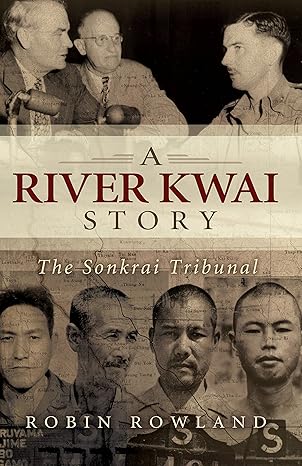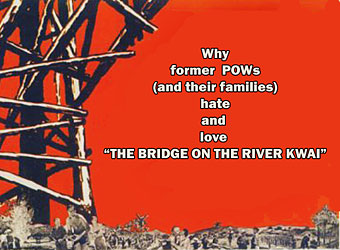
A River Kwai Story The Sonkrai Tribunal
Author: Robin Rowland Category: Investigative history Publisher: Allen & Unwin Published: April 1, 2008 ISBN: 9781741144222 Pages: 416 Country: Australia Language: English More DetailsMore prisoners of war died at Sonkrai than any other camp on the infamous River Kwai Railway. “F Force” — seven thousand Australian and British POWs –was sent by the Japanese to build the toughest section of the railway in the mountains between Thailand and Burma. Three thousand died from slave labour, disease, starvation and exposure the never-ending monsoon rain.
Why did so many die?
After the war, a military tribunal tried five Japanese and two Koreans for those deaths. The account of the trial tells for the first time the story of F Force from all sides, Australian, British and Japanese, from the lowest private to the lieutenant colonels in command.
The testimony, verdict, and the surprise sentence shed new light on what really happened on the Railway of Death. The Sonkrai Tribunal is not just a story of the Second World War, the same issues are found in today’s headlines, as military tribunals try alleged terrorists. The book asks, if it was wrong to keep prisoners in inhuman conditions then, why are some in government today saying the Geneva Conventions do not apply to the war on terror?
Related:
Links to Master’s thesis and academic papers.

A copy of my paper presented at the David Lean Centenary Conference at Queen Mary University in London in July 2008.
“Why former POWs and their families hate and love The Bridge on the River Kwai“
PDF of accompanying Powerpoint
The paper tells the secret history of the negotiations between Britain’s War Office and The Bridge on the River Kwai production team over how Far East prisoners of war would be portrayed in David Lean’s masterpiece.
Report on the conference in the Journal of British Cinema and Television, Nov. 2008, issue, Volume 5, Page 391-395 DOI
Command Ability and Command Responsibility:
The Case of Lt. Col. Hirateru Banno and the “F Force” Trials
The relationship between command ability and criminal responsibility was key to a case in a British military court in Singapore in 1946 that convicted Japanese Lt. Col. Hirateru Banno and six others for the deaths of 3,097 British and Australian prisoners of war, part of a group known as “F Force” on the Burma Thailand Railway during the Second World War. Banno was handed a sentence of three years.
The reviewing officer upheld the sentence, accepting evidence of Banno’s inability to command his troops. He also questioned the ability of the senior British officers in the POW camp.
The Banno case took place a year after the precedent-setting trial of Lt. General Tomoyuki Yamashita, which appeared to hold commanders to a strict liability for war crimes committed by their subordinates.
This thesis also examines the status of prisoners of war, how they are protected by the laws of war as well as the question of fairness in trials by military tribunals.
My late father, Frederic Rowland, was a British prisoner of war on the River Kwai.
In November 2003, I completed an interdisciplinary Masters degree in law and history at York University/Osgoode Hall Law School in Toronto, looking at the British military tribunals that tried the Japanese after the war. The thesis was called Command Ability and Command Responsibility: The Case of Lt. Col. Hirateru Banno and the “F Force” Trials.
You can download the thesis from Academia.edu
Also available on microfiche from the National Library of Canada.
Amicus No. (library search engine): 30598725
ISBN No: 0612863093
Sugamo and the River Kwai
By
Robin Rowland
During my research, I was invited to Princeton to attend a conference on Sugamo Prison in Tokyo where the United States held Japanese war criminals pending trial and for their sentences. This paper concentrates on Sugamo prison and thus has a different focus than the thesis.
Paper presented to
Encounters at Sugamo Prison, Tokyo 1945-52
The American Occupation of Japan and Memories of the Asia-Pacific War
Princeton University, May 9, 2003
Download in Adobe PDF Format (238 K)
Back
